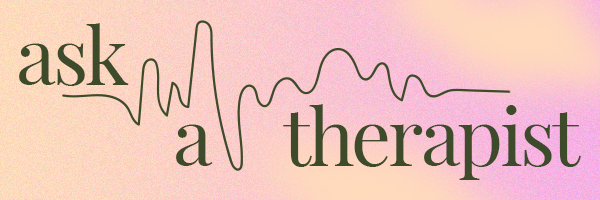How Do You Get Over A Friendship That Ended With No Explanation?
Photographed by Alexandra Gavillet
Ever wondered what you'd say to a therapist, given the chance? We asked Dr Sheri Jacobson, a retired psychotherapist with over 17 years' clinical experience and the co-founder of Harley Therapy Platform (UK Online Therapists), for advice on the things we worry about in private.
Have a question for a therapist? Submit yours for Sheri.
Question:
How do you get over a friendship that ended with no explanation?
Lou, 22
Answer:
When there's a rupture that we consider a loss, we react in a way that resembles grief. Stages of emotion arise in what’s known as the Kübler-Ross cycle: shock and denial, anger, bargaining, depression, and acceptance. And the best way to make peace with the material fact that a relationship has ended is to process those emotions. We need to go through them in order to complete the cycle. Importantly, we should not repress them, because that only delays reaching acceptance and those emotions will often bubble up somewhere else.
AdvertisementADVERTISEMENT
Rather than consciously stopping these emotions, we have to try to allow them to be. There are different tools and techniques for that. One option is journaling – a helpful way to set your thoughts and feelings out as text. You can be as honest as you'd like and as hurt as you actually are without worrying about offending someone. And some people like to shred it or rip it up afterwards. This can be cathartic and a step along the way to making peace with your feelings about your former friendship.
Therapy is quite similar, in the sense that you are cataloguing your thoughts and feelings in the safety of the room of a professional who will hold those hard feelings and help process them. Another option, especially for anger, is exercise, for example martial arts or boxing can help us get out difficult feelings – we're perhaps not verbalising them but we are still venting them through physical means.
Platonic relationships can be as impactful as romantic relationships. We may not think about them as intensely but we can still be troubled by ones that have difficulties, have ended or are in the process of ending. Very similar tools can be used for both platonic and romantic relationships.
Another good practice for processing can be gratitude exercises, where you remember you can still hold memories dear and don't need to erase them. Having an ending doesn't mean the good times are completely negated. They have taken place, they did mean something to you, and it's still possible to hold the friendship in a positive light despite the ending. It may be coloured by a tricky ending, particularly if it's quite abrupt or you've been ghosted and you don't know why. However, instead of thinking in black and white terms, make space to think that there were some really prized moments and memories.
AdvertisementADVERTISEMENT
When it comes to any kind of closure, each friendship has its own set of variables. Some people are much happier with more communication, and would be quite troubled by an abrupt ending; whereas for others, it might not be so important. It's really debatable as to whether ghosting is acceptable or unacceptable because sometimes people decide that it's better to distance themselves rather than to outline their reasons, because they're worried about hurting the other person. It's just about growing apart and entering a different phase of life and explaining this to them may or may not be troubling. Most people are generally making their best guesses and trying to do the right thing. Rarely are people deliberately trying to hurt and sabotage relationships. Often it comes out of a place of wanting to help oneself and maybe help the other person.
As to whether there is an opportunity for closure, you should follow your intuition – take a look at our own needs and preferences, and also try to put ourselves in the shoes of the friend and what they might want. So make a gut call on what you think could be helpful in this instance, and also test the waters in a gentle way. You can make a small comment rather than lay out a full analysis. Steer closer to something like 'how do you feel now that we're spending less time together' instead of sitting them down and giving them a full breakdown. Often, people would take that personally and feel sprung upon, like they're being lectured. But if you take the gentler route, you're more likely to have someone who's more engaged, and curious and open minded and willing to have a conversation about it.
The other thing that's important to remember is that this is difficult and often messy. Rarely do relationships, romantic or platonic, end in a way that's mutually satisfactory. But you should have trust that you're going to get through this. Some people stay stuck in the depressive state or the angry state, and they just can't proceed through those steps. But most people do, and it's even more helpful if you can extract the good from it and keep the positive memories. All relationships and all interactions eventually have a part to play in shaping who we are.
AdvertisementADVERTISEMENT







